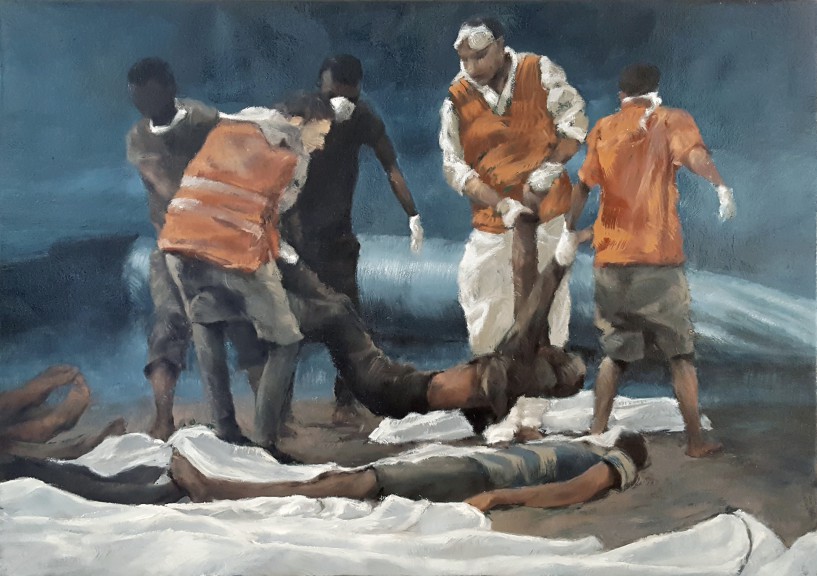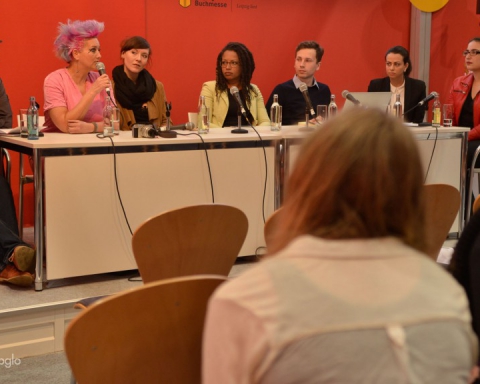I bought this book when I was still living in Leipzig. I saw it in Lehmanns and thought “uh.” That’s it. That’s all I thought. It had “Leipzig” in the title, and it was in English, so I bought it. Didn’t even read the back cover. Didn’t check the price. I took my new book home, put it in my bookshelf and forgot all about it. I sent it home when it was time, and placed it in my favorite spot in my adult fiction bookshelf when I got back. Then, I forgot all about The Leipzig Affair again.
Christmas came and I was so deep into my old life that it felt like my Leipzig days were nothing more than a dream. Wanting to remember what it was like to move around the streets of my dream city, I picked up the novel. And it did not disappoint me.

Written by Fiona Rintoul, The Leipzig Affair tells the story of Magda, a young woman living in Leipzig in 1985, fighting her way from East to West Germany.
Leaving is her only objective, and in order to get out she is willing to do pretty much anything. But her game is a dangerous one, filled with lies and hidden motives. Everyone has an agenda, and anyone can betray anyone.
And there is more, because the story is not told from Magda’s point of view but rather from Robert’s, the Scottish exchange student who falls in love with her. For Magda, Robert is her way out of East Germany, but she must proceed oh so carefully, because the world she lives in is one of complete distrust. Every person you cross in the street could be a Stasi spy, and to Magda’s luck, they usually were.
Robert tells his story from the present, years after the Wall was brought down, when he goes back to Leipzig and tries to find her. And the chapters telling his story in the present alternate with Magda’s story in 1985, still told from Robert’s point of view and referring to her in the second person. It is a raw story, told with efficient directness and without sparing any details.
The reader will share his confusion and his suspicion, and maybe will understand his love for Magda, the girl who broke his heart and for whom he keeps searching many years later.
A story like many others, I’m sure. There is a lot to tell about those years in Germany, much took place that the world still needs to know about.
Unfortunately, not all those stories are being told, and we only have a small recollection of all the things that happened.
But for me, the story told in The Leipzig Affair stood apart; it referred to events happening in Leipzig, my home.
The streets that Magda was walking in the historical fiction novel were the same streets where I had walked, her university had been my university. And yet, it wasn’t. The city I lived in for so long was a peaceful, tranquil place. Being there for my Erasmus year, I went out almost every night, and never – not once – did I fear walking home alone.
I moved through Leipzig as if nothing bad could ever happen there, even knowing that was impossible. And yet, the Leipzig the character of Magda lived in scared me to my core. That feeling, the sensation of walking down the street and knowing that every movement was being tracked, that someone was out there waiting for any mistake to condemn you.
She walked down Tarostrastraße dreaming of her freedom, the very same street I walked up to get to my home in Straße des 18. Oktober, every single day. Both of us lived in the same city, walked the same streets, but in completely different worlds, only 32 years apart.

But what scared me most of all was knowing that, while her story in The Leipzig Affair might be fiction, there were thousands like hers that weren’t. There is just something about reading historical literature, fiction or not. A tremor, something that you can’t shake off, that stays with you. It’s not fear, but something else. Awareness.
By Kenzie Rose
Kenzie Rose graduated in English Studies and is about to finish an MA in Translation and Interculturality. She’s not afraid to speak her mind but thoughts are often blurry and difficult to materialize in words. She’s working on it, though. Young and afraid of life’s uncertainties, Kenzie is still looking for a way back to Leipzig, the only place she’s ever considered her home.










